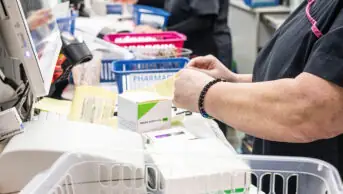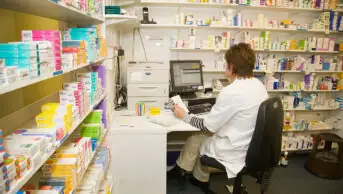
Mclean / Shutterstock.com
In April 2019, the Institute for Apprenticeships and Technical Education, an arm’s-length government body, published its proposals for five-year pharmacy degree apprenticeships.
Produced by a ‘trailblazer group’ of pharmacy employers, the proposals suggested the creation of pharmacy degree apprenticeships could open the profession to a broader range of talent. However, plans were put on hold after concerns around how the scheme would be funded, the make-up of the trailblazer group that drew up the plans, and the consultation — or lack thereof — with the wider pharmacy world.
The trailblazer group continues to engage with the sector and address what it calls “misconceptions” over what the apprenticeships might mean for pharmacy, but we wanted to find out what our readers think. Here is a selection of the responses we received.
“Pharmacy is a professional career like others, such as medicine. We are regulated because we are a profession and should be proud we are so. An apprentice model won’t work as it won’t give us the breadth of knowledge needed if we wanted to venture out into other sectors of work.”
Tanya Aubeeluck, GP and locum pharmacist, Maidenhead, Berkshire
“How about we treat the problem and not just the symptoms? Employers are underpaying and overworking pharmacists, resulting in a perceived “shortage”. These organisations are putting money first, not the patient or the profession. We are healthcare professionals and scientists, not just a shop manager or dispenser. An apprenticeship degree will seriously erase the profession’s progress. It’s a stab in the back.”
Basma Ali, hospital pharmacist, Kent
“New paths to pharmacy are welcome. There are many able and apt students who wish to pursue pharmacy as a career but cannot do so solely because of the cost and being unable to commit full time. Knowledge acquired whether part-time or full time is still knowledge and enhances pharmacy services. I would certainly enrol on an apprenticeship with immediate effect to enhance my skills and knowledge in pharmacy to provide better services.”
Adnan Tahir Mohammed, trainee pharmacy technician, High Wycombe, Buckinghamshire
“This would result in a reduced professional standing of pharmacy as a profession in the eyes of both other healthcare professionals and the general public. This is ‘dumbing down’ of our training and a retrograde step. Whether or not the apprenticeship is equivalent to a degree is irrelevant. Within the ‘Agenda for change’ banding scheme it may even result in pharmacists being banded at a much lower level because a degree is not essential.”
Jo Reid, hospital pharmacist, Pontyclun, Mid Glamorgan
“As a medicines management technician, I would jump at the chance of doing an apprenticeship for several reasons. I am unable to go to university and study owing to family commitments. I am halfway through a clinical diploma and undertaking more clinical tasks and supporting the pharmacists I currently work with. I personally like to learn ‘on the job’ rather than being taught in a class. With this you learn the basic skills needed and you are not thrown in the deep end after graduation.”
Gareth Hutchinson, medicines management prescribing support technician, North Wales
“We will end up with two tiers of pharmacists: university-educated ones and those qualified through apprenticeship. Could we ensure both have the same professional calibre, standard and quality? How could a five-year apprenticeship train a pharmacist with academic vigour and develop independent thinking? Working in a pharmacy is a tiring job and so it is not easy to study in the evenings or through day-release.”
Lok WL Woo, community pharmacist, Bath, Somerset
“It would expose apprentices to the real world of pharmacy and [help them] apply theory to practice. It would also allow those who have dependents or a mortgage, and cannot realistically stop receiving a salary, to retrain and get a career they want. The main issues I am concerned about are: is there enough time to fit four years of full-time education and 52 weeks of preregistration in a five-year apprentice scheme? Even if they manage to get General Pharmaceutical Council-accredited status, how will we get assurance that it is enough?”
Nahim Khan, senior lecturer at University of Chester and a pharmacist in Warrington
“They could be good; for example, engineering offers apprenticeships as a route. But, for myself, I have worked in community pharmacy, hospital pharmacy, GP practices, management, area management and administrative roles. This would have been difficult without the solid range of sciences I studied at university.”
Rita Bali, community pharmacist, Peterborough, Cambridgeshire
“It could, if designed well (including how its assessed), provide the student the opportunity to have a better balance between theory and practice applications. It would also attract apprenticeship levy funding for university costs, which would be attractive to prospective students.”
Jean Perkins, educational consultant, Denbighshire
“The five-year scheme will benefit the profits of the few major pharmacy chains and the academic institutions, and, if lucky, the apprentices may have a low-paid job for five years. Welcome back, Victorian England!”
Arthur Jolley, community pharmacist, Warrington, Cheshire
“I think it would be good for people like myself who are pharmacy technicians and have the desire and capability to become and work as a pharmacist but are unable to return to university for financial, family and many other reasons.”
Claire Sutton, senior pharmacy technician, Hampshire


